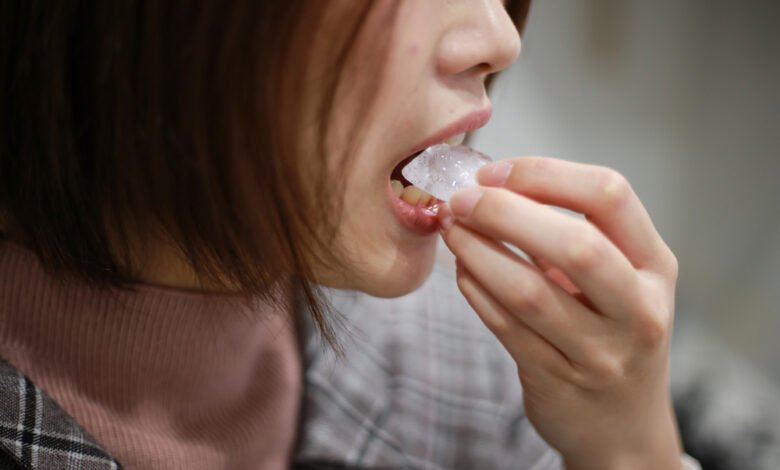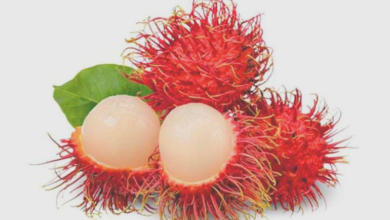Is it bad for your teeth to chew on ice cubes?

On a sweltering summer day, there’s nothing quite like scooping up a spoonful of shaved ice. The small melty ice crystals at the bottom of your glass can calm you down and quench your thirst. Sucking on ice cubes can also help with dry mouth when you’re sick without making you feel nauseated.
But what about chewing on hard ice cubes that have just come out of the freezer? Is it harmful to your health?
Ice cube eating may be one of your dog’s favorite pastimes, but it could signify an underlying health problem for you. The medical disease known as pagophagia refers to compulsive ice eating.
Ice cravings can indicate a nutrient shortage or an eating issue. It may even have a negative impact on your quality of life. Chewing ice can potentially cause dental issues like enamel erosion and tooth disease.
Related: 5 Ways Health Tech Startups are Solving the Anti-Aging Issue
Why is it so dangerous?
Whatever the reason, it’s a bad habit that needs to be broken. Chewing ice is harmful for your dental health, and if you’re unlucky, it could lead to an expensive trip to the dentist or orthodontist for you or your parents.
Chewing ice can cause enamel breaks, which might make you more sensitive to hot and cold meals and drinks.
If you eat ice and shatter or fracture a tooth, you may develop a cavity – a hole – in that tooth. This is because bacteria’s acids have a considerably easier time penetrating the softer layer of the tooth, the dentin, and causing tooth decay.
Chewing ice puts you at risk of tooth damage if you already have fillings, crowns, or veneers, or if you have braces, a retainer, or expanders.
Depending on the severity of the condition, a simple filling to a root canal – a more serious surgery requiring anesthesia – may be required.
Related: 15 Healthy Benefits to Kissing Your Partner Every Day
How to stop it?
There are a few options for getting rid of this bad habit.
- Melt ice cubes in your mouth instead of crunching them: Instead of crunching ice cubes, hold them in your mouth and let them melt. The cooling and refreshing effect will remain longer. It also won’t harm your teeth or gums.
- Stop ingesting ice: You can completely avoid ice consumption. There’s no temptation if it’s not in your glass. You may also avoid the microorganisms that can stay in icemakers, in addition to avoiding tooth injury.
- Consider these gentler options: Using softer varieties of ice, such as shaved ice, instead of conventional cubes may assist. However, flavored soft ices should be limited or avoided because they contain a lot of sugar, which is unhealthy for your teeth.
- Consume healthy foods such as raw carrots, cut apples, or other crisp fruits and vegetables. These meals can satisfy your desire for crunch while also increasing saliva production, which protects your mouth. The fibrous material may also aid in the cleaning of your teeth.
- It’s possible that biting or crunching ice is caused by an iron shortage – a disorder known as pagophagia – yet the cause is unknown.
- If none of the preceding methods succeed in getting someone to stop chewing on ice, dietary adjustments or an iron supplement may be necessary. It’s possible that a doctor’s visit is in order.
Conclusion
It’s critical to take proper care of your teeth by the time you’re about 12 years old. By that time, the majority of people have lost all of their baby teeth.
Your pearly whites can last a lifetime if you brush twice a day with a fluoride toothpaste.
Also, if you chew ice, give the alternatives I’ve mentioned a shot to see if they work.







